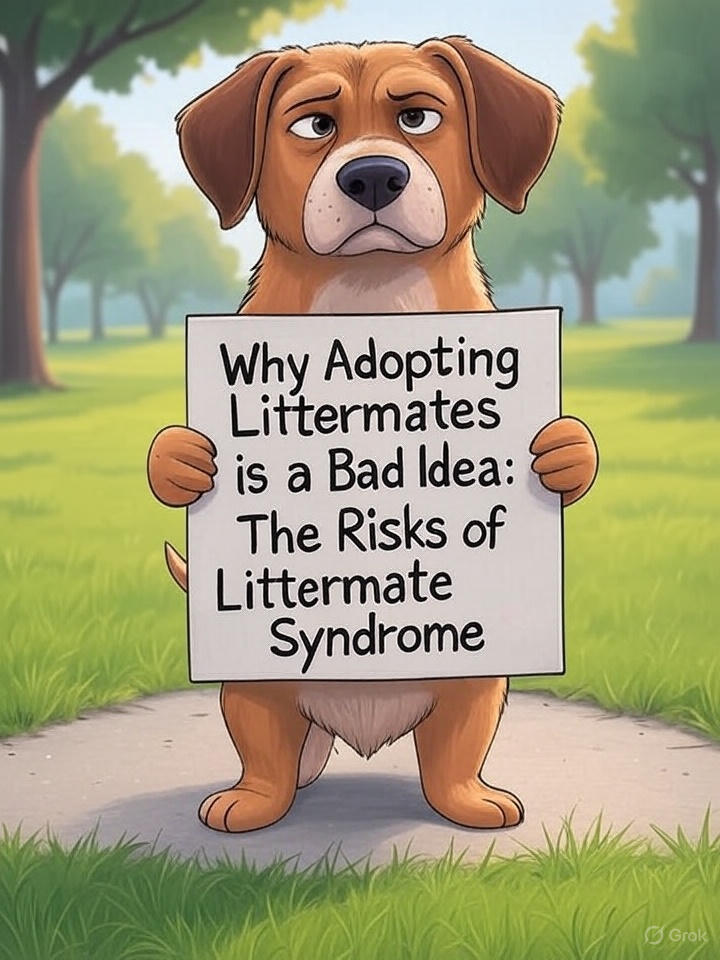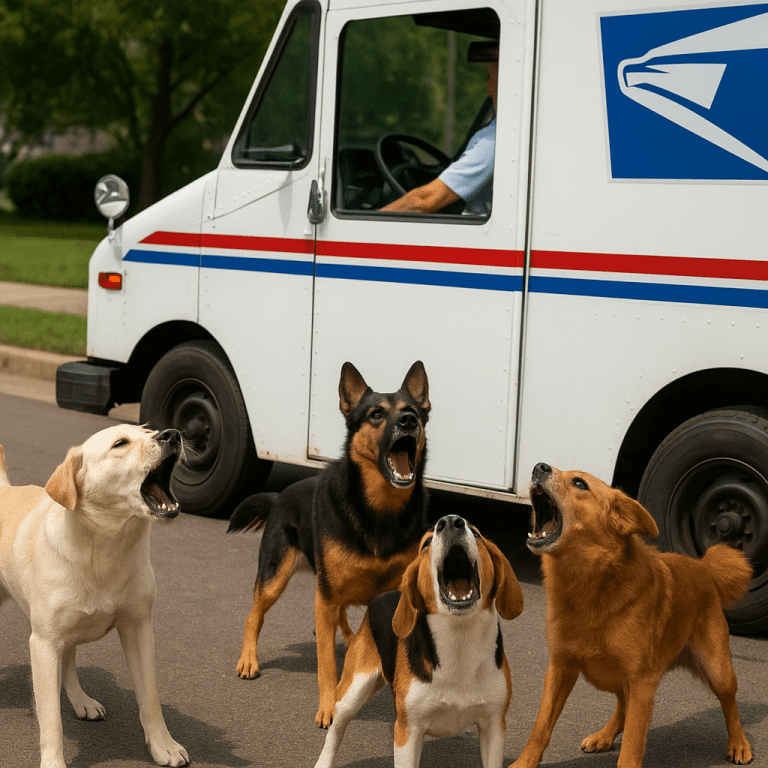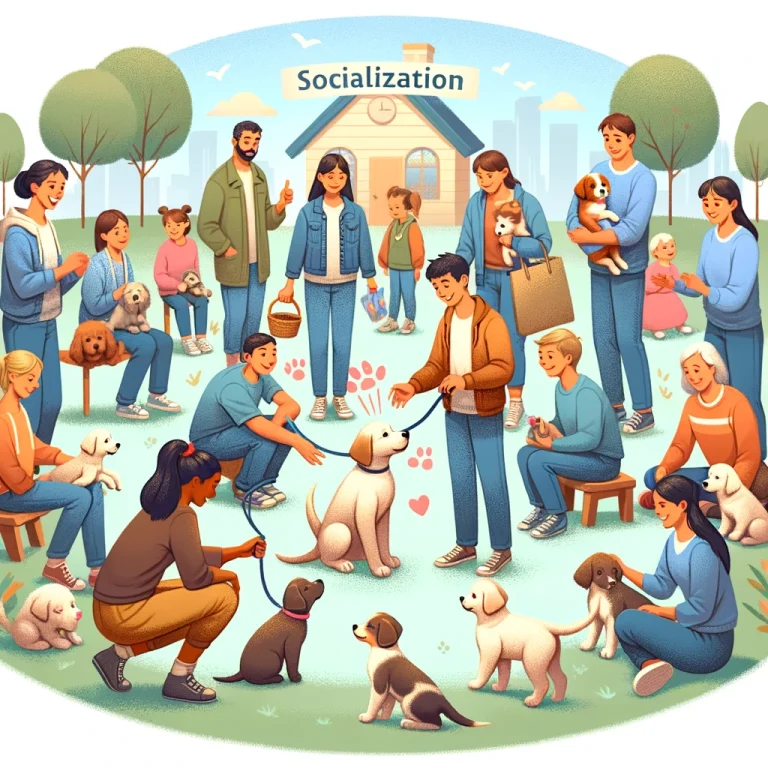Why Adopting Littermates is a Bad Idea: The Risks of Littermate Syndrome
Hey there, dog lovers! I’m the owner of Off Leash K9 Training in Georgia. With years of hands-on experience training pups of all breeds and temperaments, I’ve seen countless new owners excited about adopting siblings—thinking it’ll be double the fun and built-in playmates. But here’s the truth: adopting littermates often leads to serious issues known as littermate syndrome. It sounds cute on paper, but it can cause bonding problems, rivalry, and major training headaches that turn your dream duo into a nightmare. At Off Leash K9, we focus on setting dogs up for success from the start, and that means warning against this common mistake. Instead, consider adopting non-related pups or spacing out additions for better results. Let’s break it down and save you some heartache.
Over-Bonding and Separation Anxiety: They Stick Together, Not to You
One of the hallmark problems with littermates is over-bonding to each other instead of their human family. When puppies from the same litter are raised together, they form an intense sibling connection that overshadows their relationship with you. This leads to severe separation anxiety when they’re apart—even for short times like walks or vet visits. I’ve had Georgia clients tell me their littermate pairs whine, pace, or destroy things whenever separated, making everyday life stressful.
In contrast, adopting unrelated dogs (or one at a time) allows each pup to bond strongly with you, fostering independence and easier training. This prevents the emotional dependency that littermates develop, keeping your home harmonious.
Rivalry and Aggression: From Playmates to Competitors
What starts as playful wrestling can escalate into serious rivalry and aggression. Littermates often compete for resources like food, toys, or attention, leading to fights that intensify as they mature. In Georgia’s active households, this can mean constant interventions or even rehoming one dog to avoid injuries. Symptoms include bullying, resource guarding, and territorial behaviors that make peaceful coexistence tough. Note: these behaviors can take several years before showing.
Structured alternatives, like enrolling in professional training early, help build individual confidence without the sibling dynamic fueling conflicts. We at Off Leash K9 specialize in balanced methods that address these issues head-on.
Doubled Training Headaches: Harder to Teach, Slower to Learn
Training littermates is like herding cats—doubled effort with half the results. They distract each other during sessions, mimic bad habits, and struggle to focus individually. Housebreaking, obedience commands, and socialization become twice as challenging, often leading to underdeveloped social skills with other dogs or people. New owners in Georgia’s adoption seasons flock to us frustrated because their “cute pair” won’t listen or integrate well. Note: obedience training sessions should be one on one with you and ONE of your pups at a time. This builds a bond with you and the pup.
Opt for solo adoptions or staggered introductions (wait 6-12 months between pups) to train each dog effectively. This way, you build strong foundations without the sibling interference.
Other Risks: Behavioral and Developmental Setbacks
Beyond the basics, littermate syndrome can cause long-term psychological issues, like fearfulness, poor adaptability, or even failure to thrive independently. Puppies miss out on learning from diverse experiences, stunting their growth. It’s preventable, but once it sets in, correcting it requires extra time and expertise—something we handle daily at Off Leash K9.
When Might Adopting Littermates Be Okay?
It can absolutely work out well if you’re proactive and committed—especially with a focus on early obedience training to build strong individual foundations. Start obedience classes right away to teach commands, separation tolerance, and independence, turning potential rivals into cooperative companions. With consistent structure, separate crating, and plenty of one-on-one time with owner and each pup, experienced owners can foster healthy bonds and prevent syndrome symptoms. At Off Leash K9, we’ve seen success stories where early intervention makes all the difference, leading to happy, well-adjusted pairs.
Final Thoughts: Avoid the Heartache and Choose Wisely
In my experience running Off Leash K9 Training in Georgia, adopting littermates invites littermate syndrome—over-bonding, rivalry, and training woes that complicate life. It’s a high-interest topic during adoption seasons because it’s so preventable and saves so much trouble. Go for non-siblings or space out your furry additions for happier, healthier dogs. If you’re dealing with littermate issues or planning an adoption, reach out—we offer customized programs that get results fast, turning potential problems into pawsitive partnerships.
Ready to make the right choice? Contact Off Leash K9 Training Georgia today for a consultation. Your pups (and your sanity) will thank you!
Stay pawsitive,
Off Leash K9 Training Georgia






